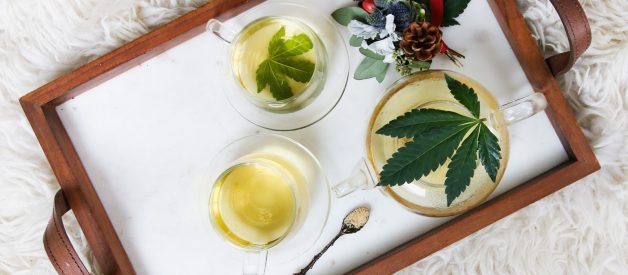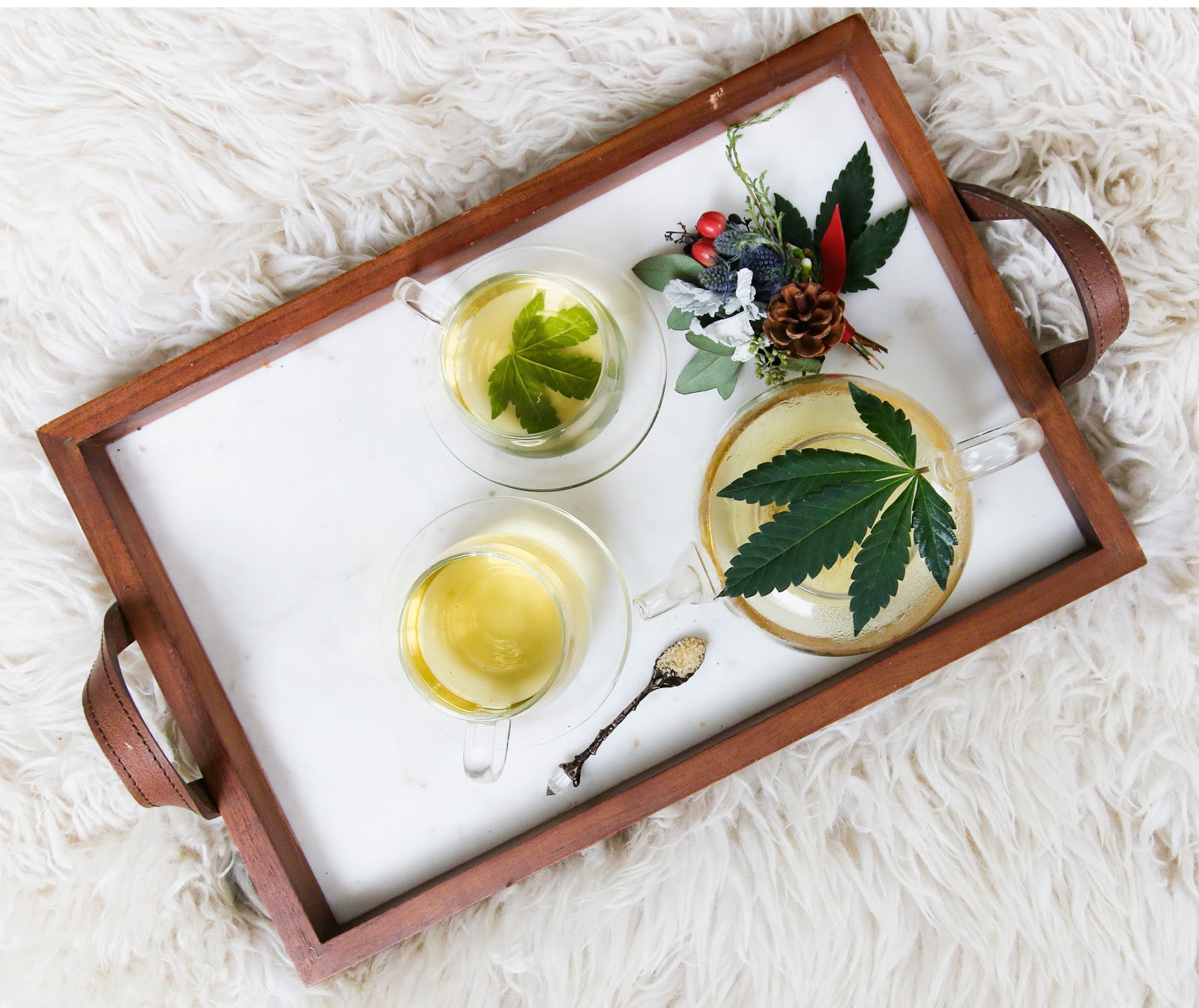
The food and drinks industry has finally caught up with the ?CBD craze.? Who wouldn?t want to tap into this lucrative market?
Greenwave Advisors, a marijuana research firm, predicts that CBD foods could make up a $3 billion industry by 2021. With the growing trends of CBD spiked foods and beverages, the industry has the potential to even grow up to $200 billion a year, despite the current lack of regulation.
Fanatics swear that Cannabidiol, popularly known as CBD, can help with everything from stress and sleep disorders, to joint pain and behavioural issues, among many other health conditions. This begs the question: are CBD foods and drinks really a panacea, or are they just hype?
In this comprehensive article, we?ll bust all the myths and misconceptions about CBD foods and drinks, helping you to get a clear understanding of what they are, and how to take them the right way.
Why is CBD Popular?
CBD owes much of its popularity to its much talked about potential benefits. CBD infused food and beverages are vigorously marketed as health foods and, in some cases, as natural alternatives to alcohol, sugar, and opioids because of their alleged ?feel-good? effect. However, it?s important to note that those who take CBD with the intention of getting a ?high? will be quite disappointed. Cannabidiol is non-intoxicating, and at most, users have reported that it resulted in lowered anxiety levels.
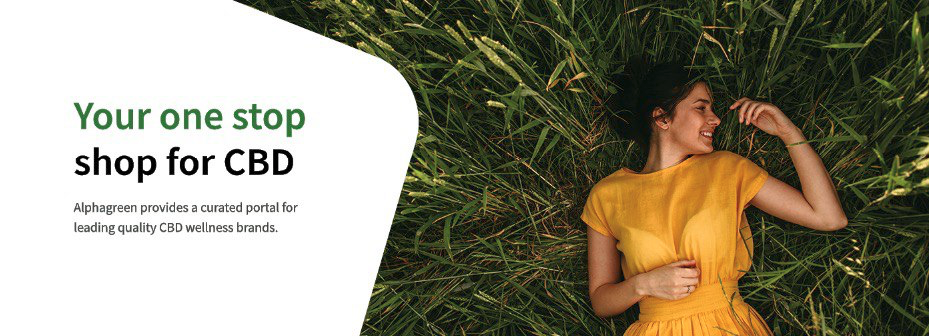 Get your personalised CBD selection
Get your personalised CBD selection
What is CBD?
Cannabidiol, abbreviated as CBD, is a non-intoxicating compound found in the cannabis plant. A common misconception is that CBD is marijuana. Cannabidiol is only one of the many compounds that make up the cannabis plant. The cannabidiol compound is extracted as an oil, commonly referred to as CBD oil, a low tetrahydrocannabinol product.
CBD has been used for human consumption for quite some time now, and in addition to the ingestion of pure CBD oil, people are finding more creative ways to take CBD in the form of CBD infused food and drinks. The development of CBD drugs is also underway, given its reported potential in the treatment of some health issues.
CBD vs. THC
In contrast to THC, which is the cognitive component in marijuana, CBD has been associated with feelings of euphoria and relaxation. As such, some people find it highly effective in alleviating nausea, anxiety, and other physical discomforts like joint pain. It?s important to note that the effects might differ from person to person. Unlike THC, CBD does not cause psychoactive effects.
The Role of Cannabinoids in the Body
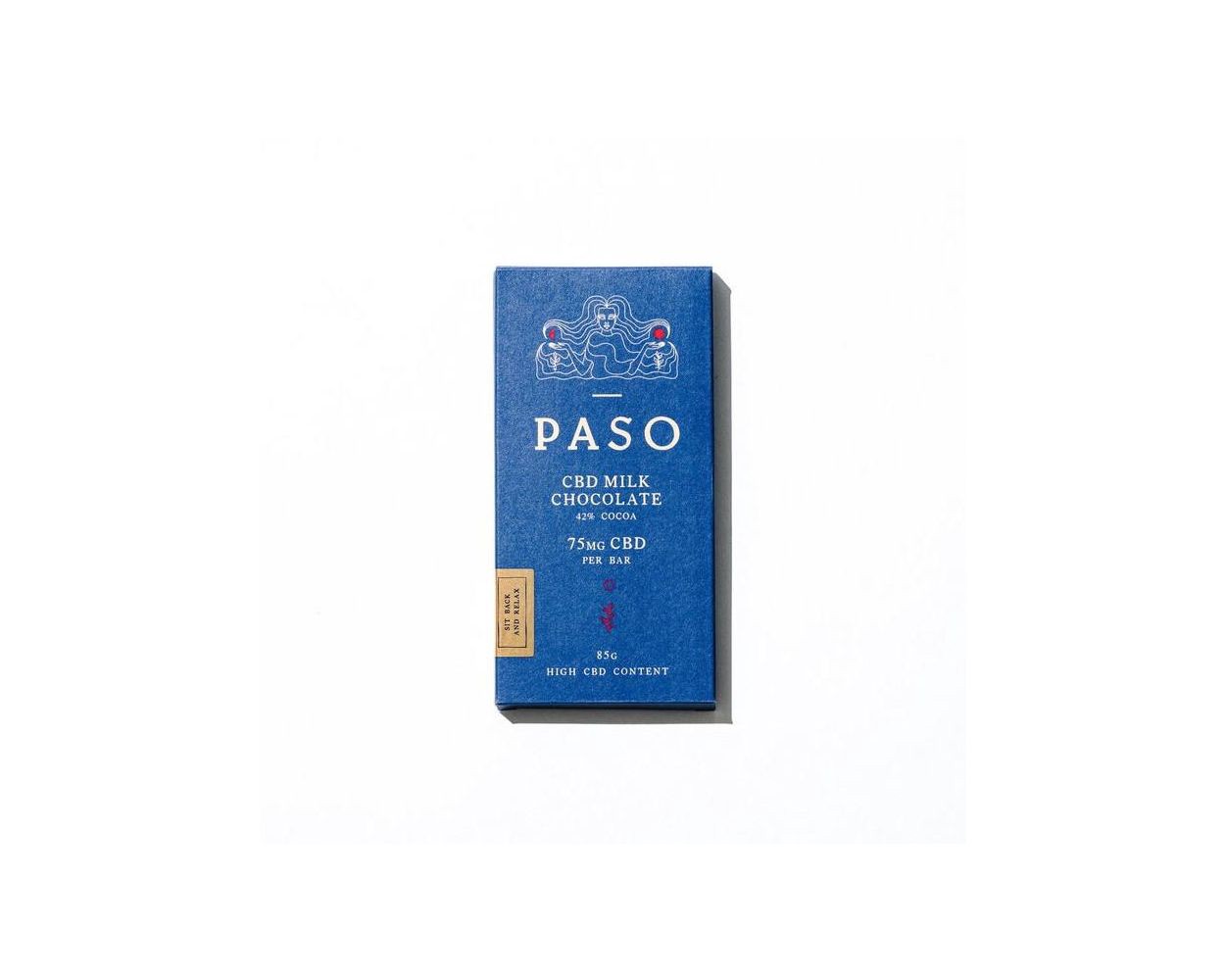 Silky smooth ? Paso Milk chocolate leaves a creamy-like aftertaste in your mouth. Great as a treat to have on-the-go or maybe just to keep a secret stash in your draw! It?s great accompanied with a nice rich black coffee!
Silky smooth ? Paso Milk chocolate leaves a creamy-like aftertaste in your mouth. Great as a treat to have on-the-go or maybe just to keep a secret stash in your draw! It?s great accompanied with a nice rich black coffee!
CBD belongs to a class of compounds known as cannabinoids. These substances affect the endocannabinoid system, responsible for homeostasis in the human body. The existence of this system was not well understood until the early 1990s when research into the effects of cannabinoids from plants on the human body began. The main question back then was: does the human body produce its own natural equivalent to phytocannabinoids synthesized by the cannabis plant?
Research showed that the body did, in fact, produce two natural compounds ? endocannabinoids anandamide and 2-AG. These two came to be known as prominent analogues to THC and CBD. In the human body, these natural substances take part in homeostasis, and they have an influence on the mood and appetite. The plant synthesized equivalents have the same qualities; therefore, they can be used to supplement their natural counterparts and bring the body back to a state of equilibrium.
Getting started with CBD

For beginners, taking low doses of CBD is the way to go. A good start would be starting with 1 milligram of the compound for every 10 pounds of body weight. Each individual will mostly react differently to foreign substances in their system, hence it is safer to let the body gradually determine how much it can handle. Ideally, it takes about 30 to 40 minutes for the CBD to start taking effect. If you don?t feel anything, wait at least 24 hours before you can take another dose of the same amount. In some cases, your body has to first acclimatize to the CBD.
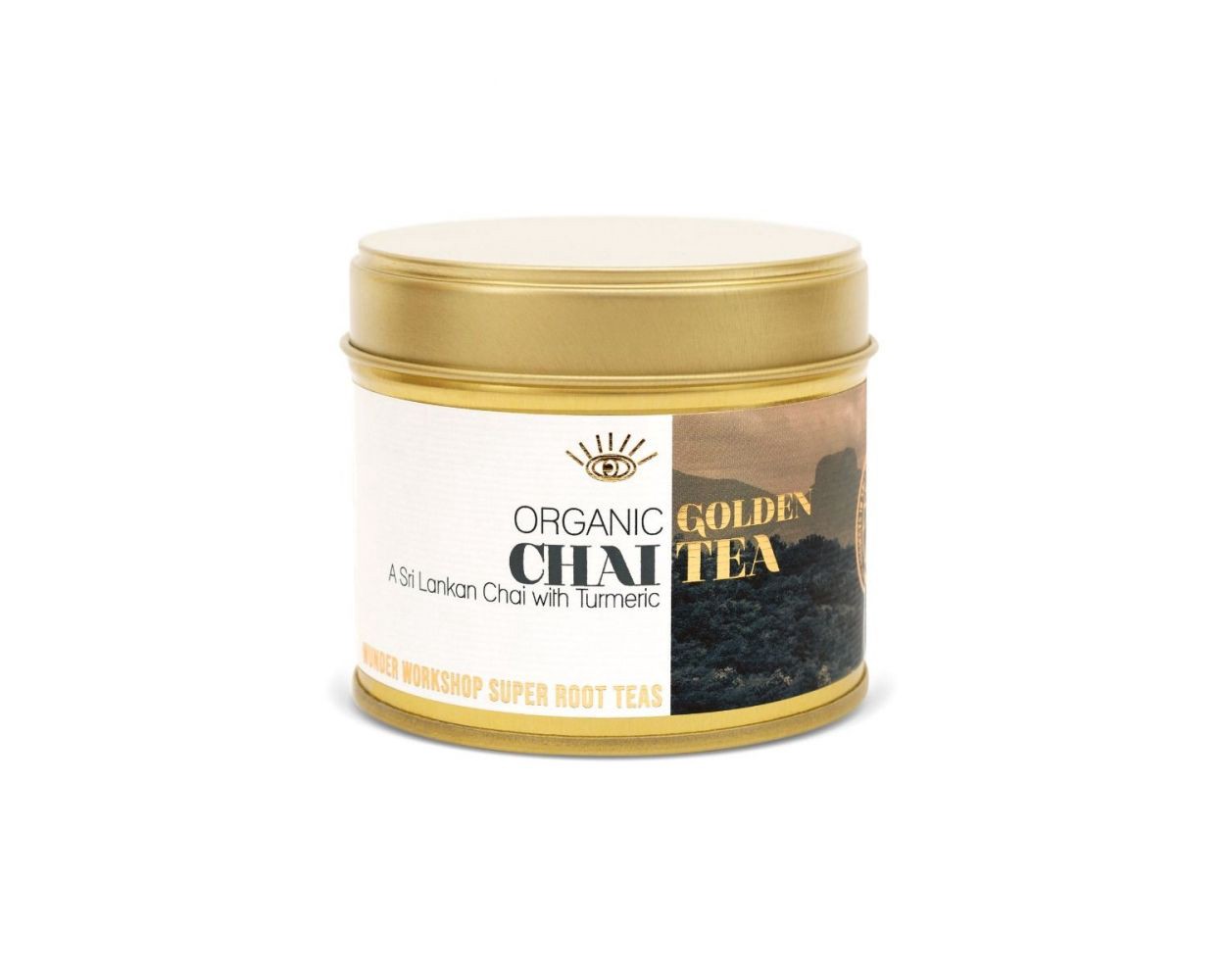 Our Ayurvedic Chai Spice Tea natrually get?s it signiture spicy kick from tumeric thats been infused.
Our Ayurvedic Chai Spice Tea natrually get?s it signiture spicy kick from tumeric thats been infused.
In the event of not feeling any effect after the second dosage, wait for another 24 hours and then take another dose with an increment of one milligram from your previous dosage per 10 pounds of body weight. It?s important to remember that the maximum dosage for most people rests between 5 to 6 milligrams of CBD per ten pounds of body weight. Taking anything above that amount will be just a waste since it will be excreted. So far, there haven?t been any recorded cases for CBD overdose
The commonly experienced side effects are fatigue, anxiety, and disorientation.
Are the Cannabinoids in CBD Similar to those Naturally Produced in the Body?
Considering the critical role of cannabinoids in the body, taking CBD as a supplement is often recommended by physicians. Researcher E.B.Russo first proposed the theory of endocannabinoid deficiency syndrome or CECD in 2004. The condition entails situations whereby one?s body cannot generate enough endocannabinoids. This theory was furthered by researchers, Smith and Wagner in 2014, citing that the deficiency could potentially be the cause of autoimmune disorders, including migraines, fibromyalgia, and IBS. Thus taking CBD oil can be a way to counter this.
Although there is evidence that CBD can counter some medical issues, users have to tread with caution. This is because there is limited research conducted on the subject and of the little research done so far, only a small percentage was actually done on human clinical trials. The potential benefits of CBD may be worth it, but there is still a lot of mystery as to how it affects different people in different ways.
There are many perceptions when it comes to making a case for CBD oil. Its potential benefits range from pain relief to relieving anxiety, making it one of the best all-round supplements on the market. It?s important to note that research confirming these claims is still very preliminary. Drug regulation authorities are yet to approve it as a generally accepted substance safe for human and animal consumption. Because of its association with a schedule 1 drug (marijuana), research into CBD has not been that extensive yet.
CBD Mechanism of action
CBD is one of the cannabinoid chemical compounds that act on cannabinoid receptors. It acts on the same brain receptors as the naturally synthesized endocannabinoid neurotransmitters. These receptors make up what is known as the endocannabinoid system. This system is responsible for altering neurotransmitter release in the brain; thus, it regulates mood, sleep, and pain.
The acting time and the duration of CBD depend on the consumption method used. For instance, CBD acts the quickest when it is inhaled or applied under the tongue, but if ingested through infused foods and drinks, it acts slower and becomes less potent. When ingested, before it is distributed in the body, CBD, will first have to go through the liver where most of it is inactivated. As a result, only a small amount out of the total ingested will end up reaching the brain.
Why You Should take CBD?
While CBD already has a lot of alleged benefits, further research is still needed to prove the benefits scientifically. The good news is that so far, researchers have managed to find evidence to back up most of the alleged CBD benefits.
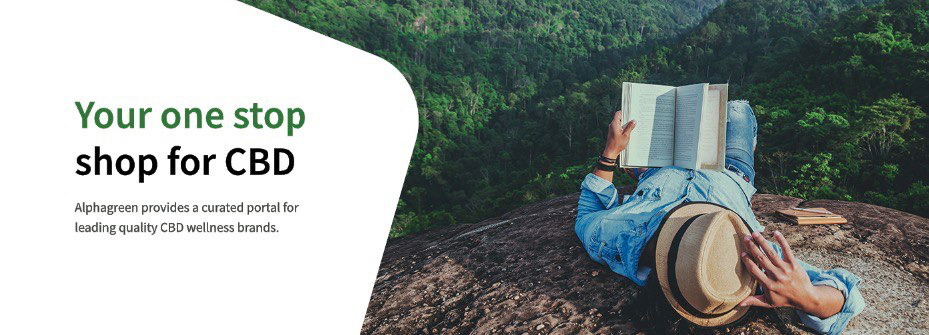 Explore the best CBD brands in the world
Explore the best CBD brands in the world
- Potential calming effects
CBD has calming effects that are similar to those of marijuana, but it doesn?t have the psychoactive effects due to a lack of THC. THC is the element in cannabis that causes the ?high? and hallucinations.
As a result, there have been suggestions that CBD can help with behavioural issues, insomnia, and stress.
- Potential Therapeutic Qualities
According to several preliminary studies evaluating the effects of CBD on humans, it is most effective in treating anxiety and insomnia. Numerous double-blind placebo-controlled studies, as well as in vivo and in vitro studies have also indicated CBD?s potential anti-inflammatory, anti-catabolic, anti-psychoactive, and anti-depressant qualities. Recent research has also cited that CBD can be used for pain relief, combating opioid addiction, and in the treatment and management of Parkinson?s disease and skin diseases.
Evidence from clinical, preclinical, epidemiological and human experimental studies has shown that, when administered acutely, CBD is indeed effective in the treatment of social anxiety disorder, generalized anxiety disorder, obsessive-compulsive disorder, panic disorder, and post-traumatic stress disorder. Nonetheless, at present, only a few studies have investigated chronic CBD dosing.
Are CBD Infused Foods And Drinks Legal?
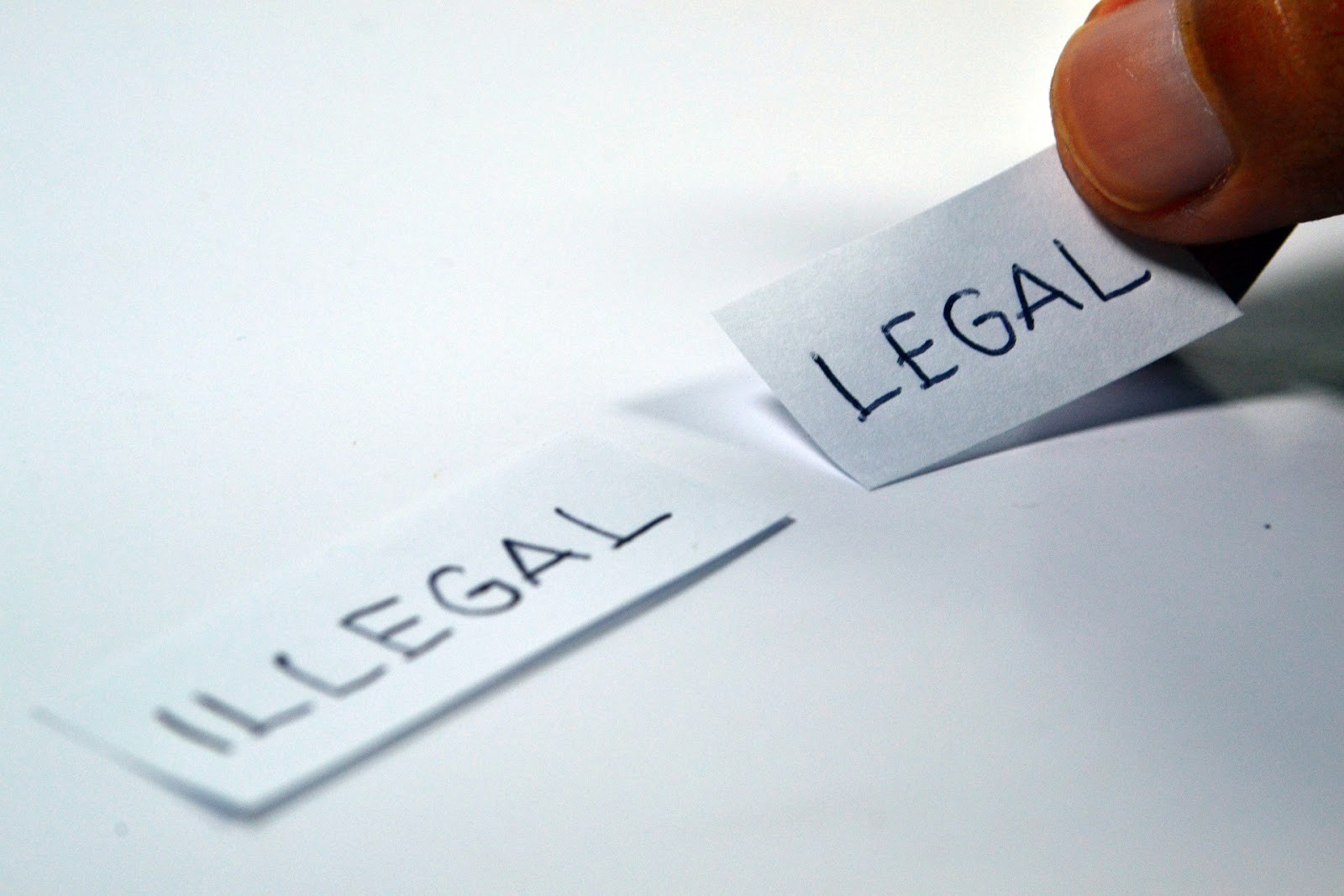
The regulation for CBD is still at a rudimentary stage and varies by location. In the UK, CBD products are legal as long as there are no claims that they can treat diseases. Another condition they need to satisfy is that the CBD should be extracted from a cannabis plant with 0.2% THC or less. Regulations in other jurisdictions tend to be rather lax and not yet fully formed.
The US Food and Drug Administration approved CBD products; however, more research to back the FDA?s decision is still underway. Part of the FDA?s current supported legislation forbids food manufacturers from adding drugs to their products; however, in some states, exceptions are being made. In New York and other states with strict regulations, the federal authorities are cracking down on food outlets infusing CBD into foods and beverages.
Most of the uncertainty about CBD products stems from their association with marijuana; however, to date, CBD products have stayed in the clear when it comes to claims of addiction or dependence. The World Health Organization has found no grounds that CBD may be an addictive substance. This is because CBD products lack THC, a substance in marijuana responsible for addiction.
Popular CBD Infused Food and Drinks
The endless list of CBD infused foods and drinks includes kombucha, cold brew, salad dressing, and gummies, among many others. As the CBD market is proving to be lucrative, currently at about $2.1 Billion dollars, health-conscious brands are infusing CBD into regular foods to maximize the opportunity for people to take CBD more. The quest to take CBD creatively is working out quite well.
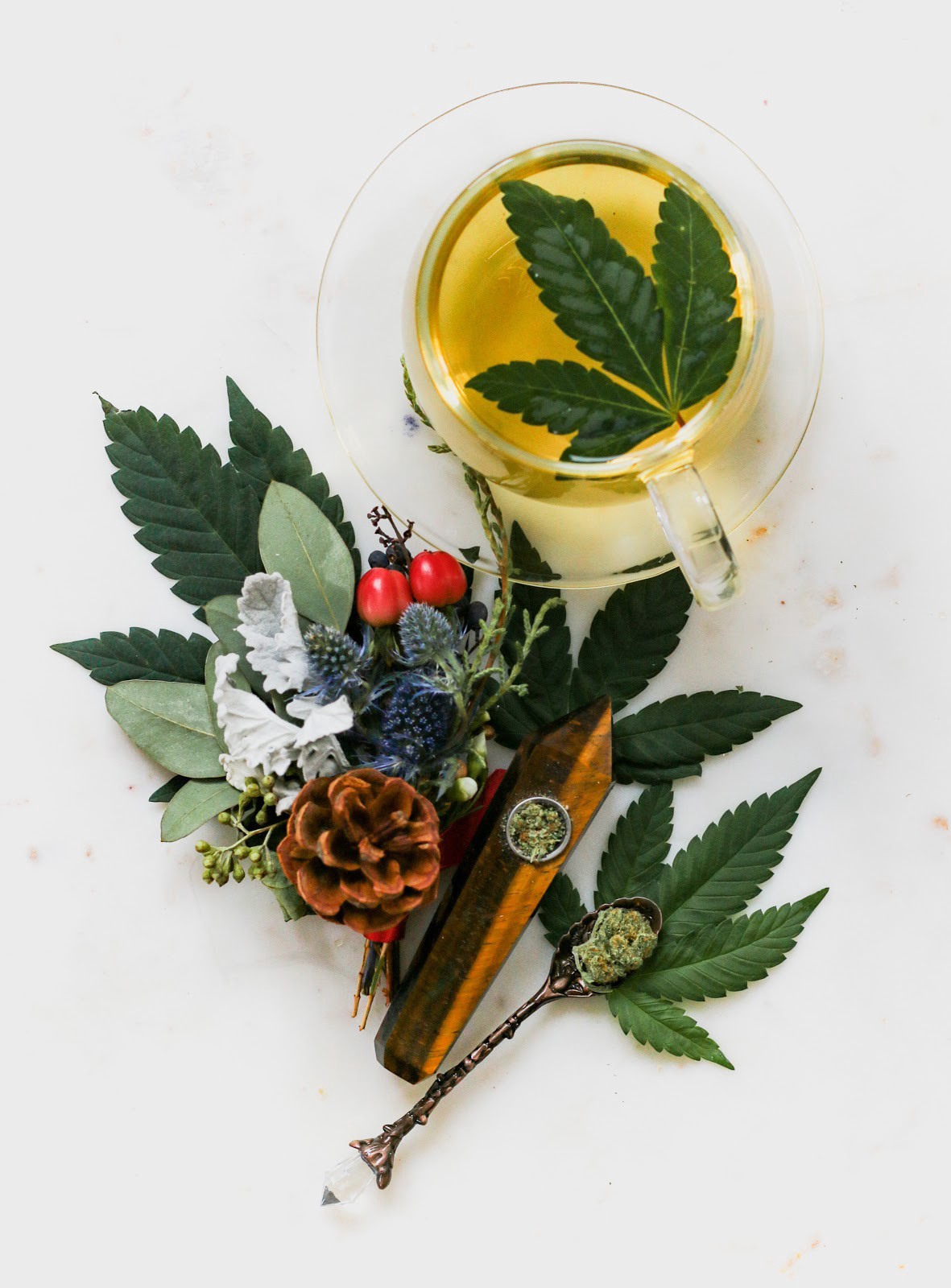
- Cold Brews
Cold brews are great for most people, however, some can experience anxiety, nervousness or ?jittery? sensations. This is where CBD saves the day. It allows cold brew drinkers to feel the energy of the caffeine, without the jitters! CBD eliminates the negative effects of over-caffeination.
- Kombucha
This tea-based beverage, commonly known for its probiotic qualities, now has a CBD infused version that is gaining a lot of popularity among CBD consumers. There are claims that this healthy beverage can help in boosting the immune system and relieving several symptoms. The combination of Kombucha and CBD seems like a good match if these claims are to be validated.
- CBD Cocktails
CBD infused cocktails vary greatly, and there are currently no set restrictions on these. Both CBD oil and tinctures have found their way into CBD cocktails. The CBD extracts can be mixed with spirits such as vodka and cognac, as well as beer and wine. For each combination, the effects of the CBD are different. For example, beer and wine are water-based; therefore, they will not react the same way as the spirits when mixed with CBD oil. For others, this way of taking CBD is effective, but some people say the effects of CBD are a bit minimized when taken with alcohol.
- CBD Edibles
The culinary community continues to come up with new recipes for adding CBD in food. This includes gummies and even a modified version of brownies. Edibles are popular because of their reasonably low doses of CBD, allowing first-time users to gradually get used to the new substance in their bodies and see if there are any allergies.
Unlike other cannabis edibles, CBD edibles are non-intoxicating. They have significantly less THC; thus, they cannot be used to induce a ?high.?
What other Forms Does CBD Come In?
CBD used in foods generally comes in two distinct forms. One is CBD oil, and the other is CBD tinctures. There are also other options such as capsules and creams, but they are not as popular. The distinguishing factor is that while CBD oil is oil-based, tinctures are alcohol-based. CBD oils tend to have varying intensities of cannabis flavour. The scale ranges from the bland tasting extracts without any hint of flavour to those with a vegetal citrus flavour. The purest form of CBD oil is extracted directly from the plant.
- CBD Oil
CBD oil, sometimes referred to as hemp oil, was initially used in its pure state. However, as new research brings to light the numerous potential benefits of CBD, people are finding new ways of incorporating the oil into their diet and everyday life. When used in beverages such as cocktails, CBD oil forms a separate layer with the other liquid ingredients and retains its distinct smell. When used for cooking, it can be added without any restrictions. To enhance CBD absorption, most people take it mixed with nut and other plant-based oils.
- CBD Tinctures
The alcohol-based CBD tinctures are often used in beverages because they integrate seamlessly with other liquid ingredients. In cocktail beverages, tinctures dissolve into the rest of the cocktail easily, unlike CBD oil which is not water-soluble.
Cooking Food with CBD
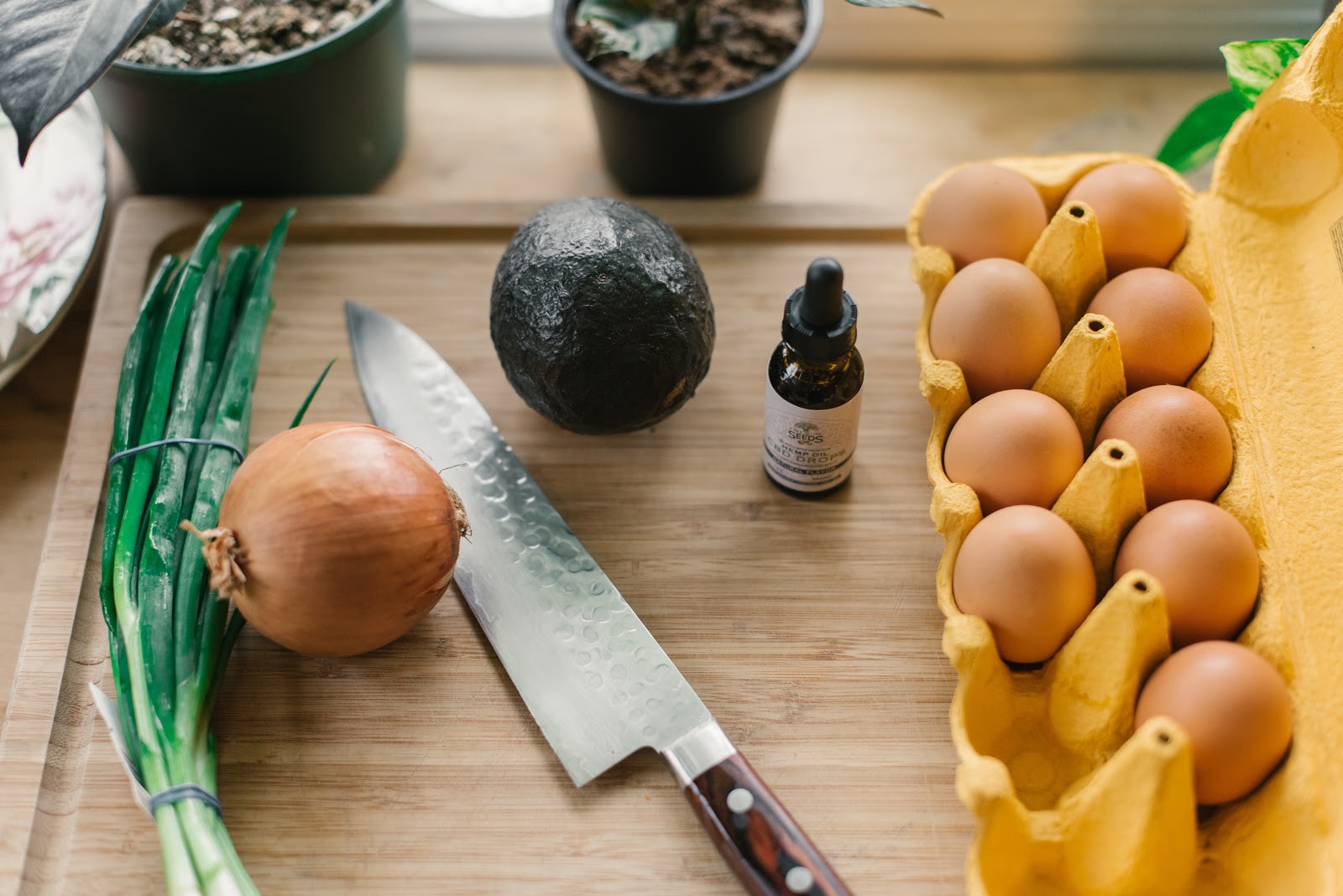
Cooking food with CBD oil is gaining a lot of popularity, even outside commercial food outlets. Many people have started to use CBD oil to make homemade beverages like smoothies, coffee, and milkshakes. Considering oil evaporates at high temperatures, sauteing CBD containing food in an open pan is out of the question.
Desserts are an excellent option when making CBD infused food. The tricky part of using CBD oil in cooking centres around dosages. One should be thoroughly informed on dosages and use a product which has a verified CBD concentration, or they risk either using too much or too little of it.
Effects and Benefits of CBD When Combined With Other Ingredients
The expert opinion over CBD infused foods and beverages is sought after by many. While tangible research data can now back the claims on the benefits of pure CBD oil, the effectiveness of CBD combined with other ingredients is still yet to be investigated.
Does CBD in Food Even Work?
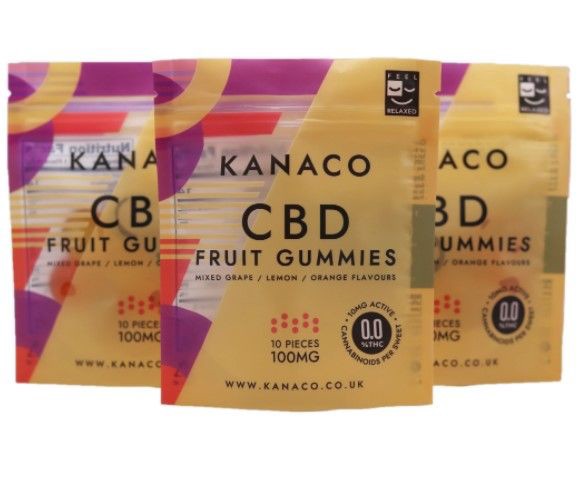 Kanaco CBD gummies bundle deal is a cost-effective way to purchase three packs of fast-acting colourful and tasty gummies and get the 3rd at a half price. Chewing CBD gummies is both delicious and effective: CBD will provide needed relief and unwind while 100% natural snack will supply needed CBD dose.
Kanaco CBD gummies bundle deal is a cost-effective way to purchase three packs of fast-acting colourful and tasty gummies and get the 3rd at a half price. Chewing CBD gummies is both delicious and effective: CBD will provide needed relief and unwind while 100% natural snack will supply needed CBD dose.
According to Georgetown University Medical Center neurology and biochemistry professor James Giordano, CBD should not be treated as ?a panacea.? The director of the University of California Los Angeles Cannabis Research Initiative, Jeff Chen, also echoed the same sentiments towards CBD and its usage.
While CBD does have a ?feel-good? calming effect for some people, its effectiveness in helping with some medical issues such as the treatment of cancer is still not conclusive.
Is CBD FDA Approved?
Due to the limited progress in the research of CBD?s potential in alleviating most of the health conditions, the FDA has only approved one CBD product, Epidiolex, a prescription drug that treats two rare, severe forms of epilepsy.
The approval came after some clinical trials suggesting that the drug could aid in reducing the severity of the epileptic seizures. Ongoing research into its effectiveness in treating chronic pain is still underway.
Factors that Influence the efficacy of CBD?
Several factors have been reported to positively or negatively affect the effectiveness of CBD products.
- Bioavailability
From the observations made in preliminary studies and some animal studies, the bioavailability of CBD in the body changes under different metabolic conditions.
- Dosage
Chief among these factors is the dosage. The higher the dosage, the higher the amount of the active compound that gets to the brain. To put it in simple terms, the more CBD you take, the stronger the effects will be.
- Metabolic Rate
Every individual has a unique metabolic system. This explains why CBD is absorbed and metabolized at different rates in different individuals. Some people will experience heightened effects, while others may experience milder effects.
How to take CBD
The physical state of the CBD product affects the rate of absorption. General principles dictate that liquid products are absorbed faster than those in solid-state. This is also true in the case of CBD products. You will find that capsuled CBD and CBD ingested will take more time to act compared to when taken in liquid form.
Product preparation processes such as heating may also affect the effectiveness of the CBD. Notably, temperatures above 180 degrees Celcius can degrade the active ingredients in many CBD oils. Exposing CBD oil to direct high heat, such as an open flame, can degrade its composition and lower its potency.
CBD intake via smoking and vaping involves temperatures that evaporate terpenes, converting them into a gaseous state without necessarily degrading them.
How much is too much?
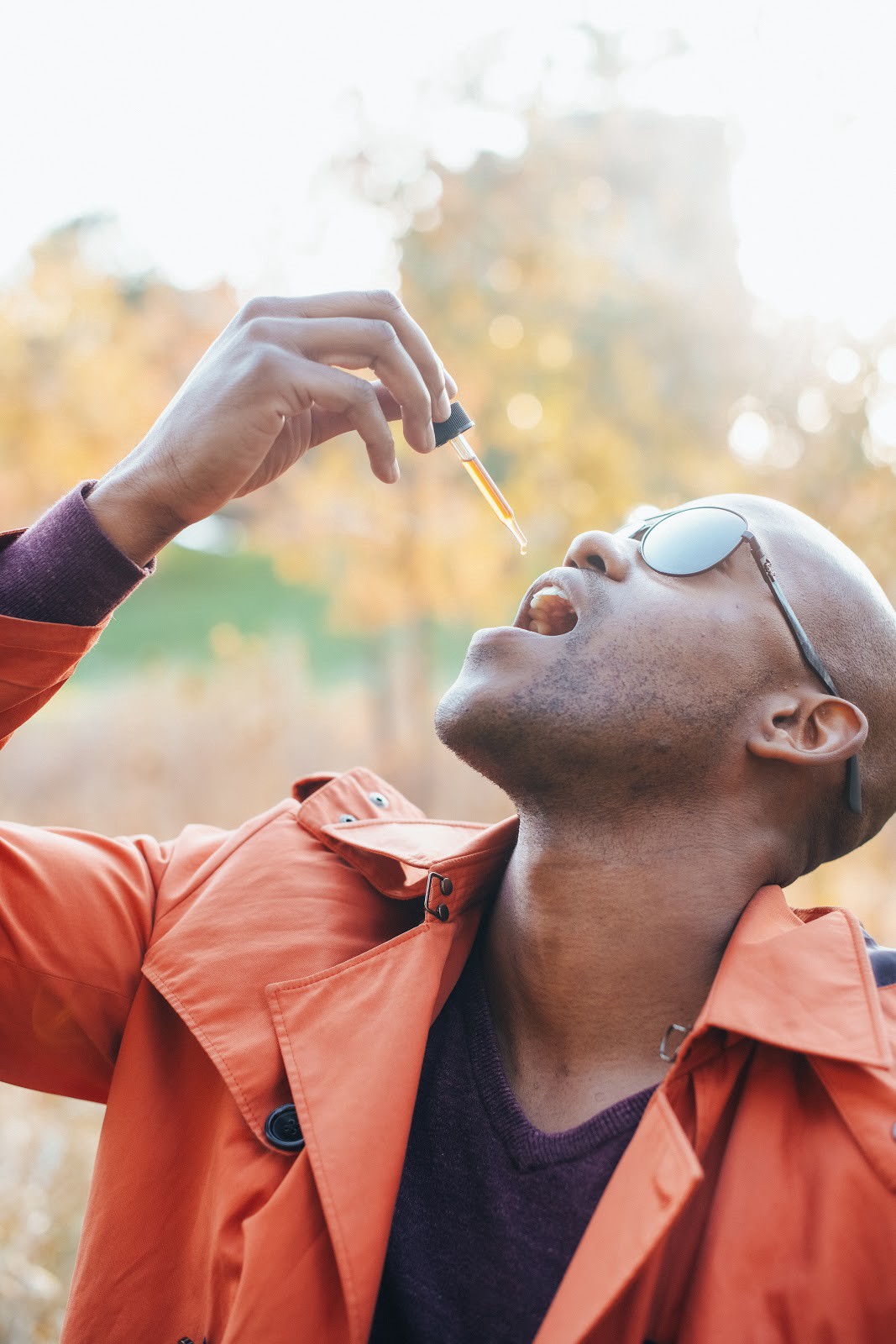
CBD experts often advise that only small doses of the compound should be taken. According to clinical trials carried out on the use of CBD to help ease pediatric epilepsy, schizophrenia, or anxiety, several hundreds of milligrams were prescribed to the participants a day. However, one study showed that 15 milligrams of CBD caused a significant boost of alertness. Such observations have led experts to conclude that the ideal CBD dose depends upon the individual as well as the condition being treated.
The majority of products with CBD as an additive tend to follow the same pattern of low CBD concentrations. However, this differs from product to product.
When it comes to the question of whether people are taking enough doses, experts say they are not entirely sure. To date, there is no established baseline yet to determine the concrete required doses for different conditions.
Generally, people have different levels of sensitivity to CBD. For some, even extremely low doses cause a notable effect on them. On average, most people will find a dosage of 1 to 6 milligrams for every 10 pounds of the bodyweight to be effective. According to the studies conducted so far, the amount of CBD that has been deemed both effective and safe goes up to 300 milligrams. Nonetheless, as mentioned above, this amount will vary from person to person as well as the condition being treated.
Should You Take CBD on an empty stomach?
Taking CBD on an empty stomach will have a different effect compared to when you take it on a full stomach. A recent analysis found that taking CBD on a full stomach increases the rate of absorption. This is because CBD is fat-soluble; therefore, when you take it with a meal, it can easily get absorbed along with the fats in the meal. Nonetheless, an excessively fat-rich meal will negatively affect the absorption rate. Large fat globules can coat the inner lining of the gut or the mucosa, ultimately reducing the CBD absorbed into the bloodstream.
Taking CBD on an empty stomach is less advisable as one may experience feelings of nausea and vomiting. Furthermore, your stomach acids are extremely potent such that if CBD directly comes into contact with them, the cannabinoids would most likely get degraded before they act in the body.
Can the Ingredients You Add to the CBD Oil Make a Difference?
Taking CBD creatively can actually make a difference. The large catalogue of CBD products can witness this. Being a fat-soluble compound, CBD is mostly suitable for consumption mixed with other ingredients.
Nevertheless, as most CBD infused foods and beverages are yet to be tested in clinical trials, the effectiveness of CBD mixed with other ingredients is still inconclusive.
- Emulsified Fats
The most common emulsified fat often mixed with CBD is olive oil. Taking CBD with olive oil will enhance the absorption process, allowing more CBD into your bloodstream.
Because oil and water do not mix, ?nano? CBD manufacturers take advantage of one of the oldest tricks in the recipe book ? natural emulsifiers. It?s not a coincidence that when whipping up a homemade salad dressing, recipes usually call for natural emulsifiers such as honey, egg yolks, or mustard. This isn?t just for taste; these ingredients help stabilize oil-in-water mixtures.
If you could microscopically examine these salad dressings, you would see countless tiny drops of oil suspended in vinegar (which is mostly water). These droplets can easily pass through the mucosa, allowing the passage of fat-soluble CBD along with it.
- Sweets and Sweeteners
Certain ingredients, such as sweets and sweeteners, amplify the feel-good effects of CBD. Ingredients such as sugar and chocolate already have their own feel-good influences; thus, when blended with CBD, the effects just get better.
- Caffeine
There are many caffeinated foods containing CBD, but the most popular of them all is the cold brew. Caffeine is absorbed into the body very quickly, and it?s responsible for speeding up metabolism. When you take CBD with caffeine, both the absorption and metabolization become quicker. It?s important to note that in some cases, these two can have contrary effects on each other. For instance, CBD can counter the effects of caffeine, while in some people, caffeine might interfere with the calming effect of CBD.
Taking CBD in Alcoholic Drinks
CBD is becoming an increasingly popular additive in alcoholic beverages. This combination is rather tricky, considering the fact that, the more alcohol you take, despite the concentration of CBD also increasing, often the alcohol will overshadow CBD effects. The basic rule of alcohol by volume applies to all cocktails, i.e. the higher the amount of alcohol taken, the more its effects will be felt.
Is it Safe to Eat CBD containing Food?
CBD containing foods will often come with the concentration of CBD listed. While CBD containing products are safe for consumption, it?s important to keep in mind that they are not FDA approved yet.
The task of verifying brand claims, therefore, falls on the consumers. The most trustworthy criteria consumers can use to evaluate CBD products are previous user reviews. Serious precautions should be taken by users who are already taking other medications or planning to do so. You should consult your physician to assess if CBD has adverse effects on the other drugs you are taking.
Where to Source CBD Extracts
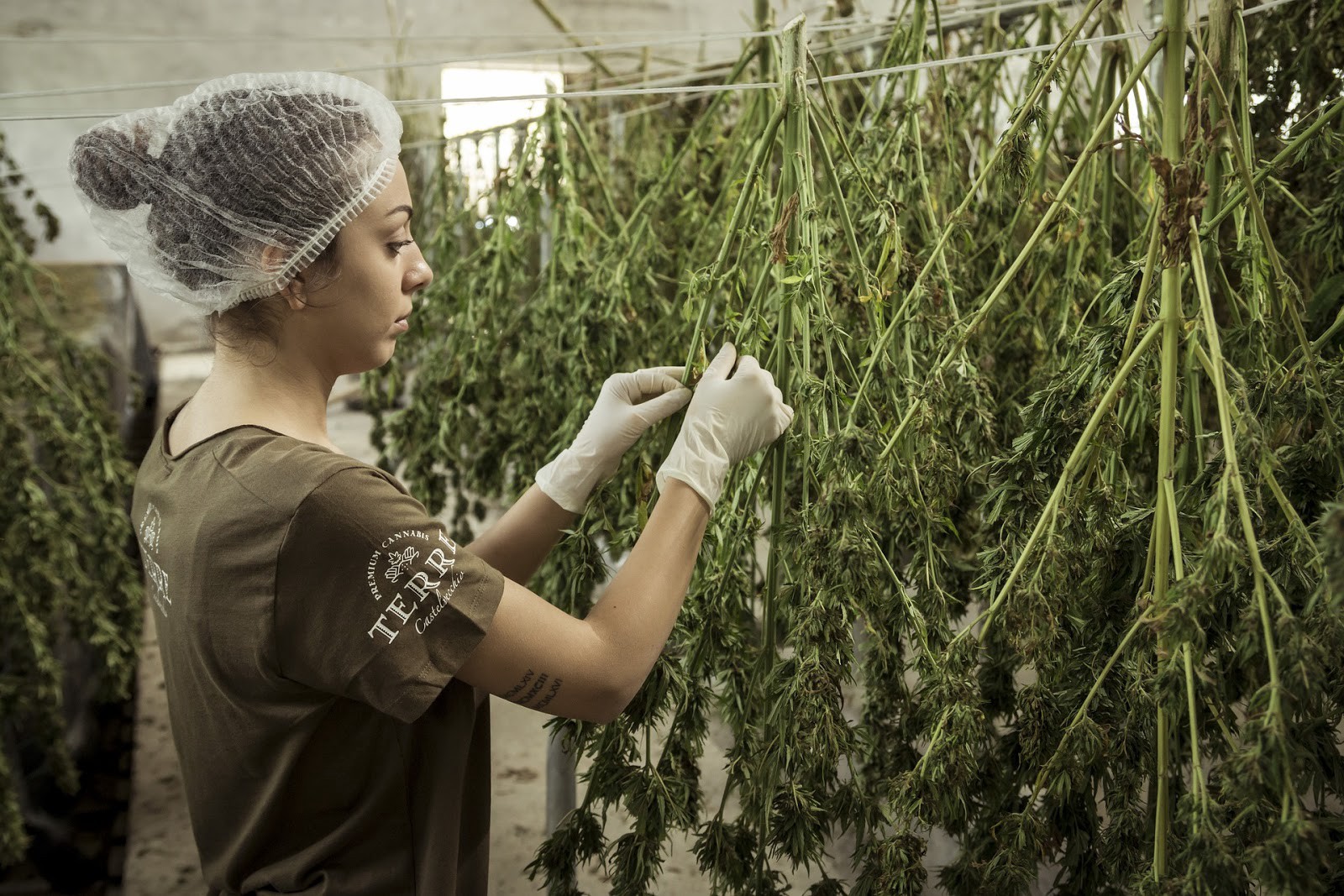
The revision of cannabis laws and regulations has opened up various avenues for the general public to acquire CBD extracts easily. Medical cannabis dispensaries are often the best place to start. You will get a variety of options and enough information on each of the brands at your disposal. Some health food stores have also started stocking up on CBD oils.
If you are looking to process CBD infused foods yourself, a better idea would be to approach a CBD producer. This will give you more control over the final product you get. You can even order bespoke CBD products to suit your intended process if you can?t get what you need off the counter.
Sourcing your CBD from well-known sources will eliminate your chances of being sold fake or poor quality CBD. A 2017 study published by the University of Pennsylvania School of Medicine indicated that 70 per cent of CBD oil extracts that were available online were not what the sellers or manufacturers claimed them to be. The lack of regulation in this area has left many buyers falling to the bait of false claims.
According to another study, while some oils did contain CBD, they also contained THC, a psychoactive compound with undesired effects.
Christine Smith, the founder of Grn CBD, a company that manufactures CBD-infused chocolate and skin products, weighed in on the subject, emphasizing that people should not blindly consume CBD products without validating the claims made by the manufacturers. Thoroughly researching a purveyor of CBD-infused foods can include requests to see certificates of analysis, test results, and product liability insurance, among other documents.
Irresponsibly sourced and incorrectly prepared CBD oils can contain high levels of lead, pesticides, as well as the psychoactive THC. Dr Allan Frankel of Greenbridge Medical Services stated that there were observations that hemp oil and other CBD products originating from Slovenia and China are often contaminated with all kinds of heavy metals.
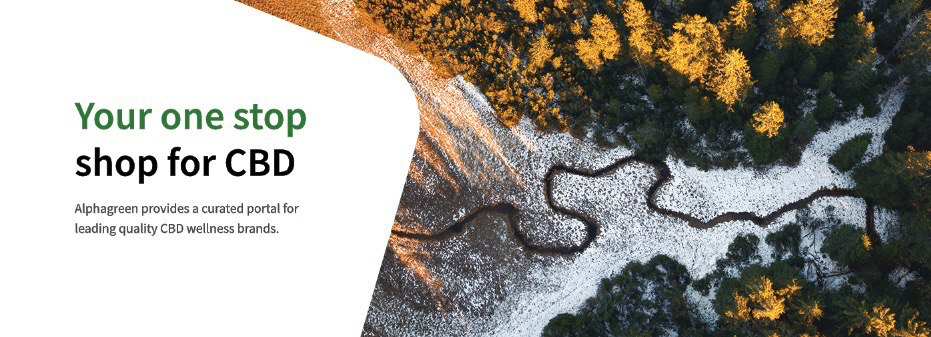 Explore the best CBD products
Explore the best CBD products
What Are the Side Effects of CBD Infused Foods?
The most common side effects include diarrhoea, fatigue, and disturbed appetite. Sara Ward, a pharmacologist from Temple University, stated that part of the debacle in CBD and cannabis oil lies in their unpredictable characteristics when consumed with food. Their effects per individual greatly vary and can stay in one?s system for an unpredictable amount of time.
Age Restrictions For CBD
Given its non-intoxicating nature and lack of side effects common for THC, such as paranoia and hallucinations, CBD is safe for users of all ages. Extensive research is yet to determine whether it is totally safe for children. So far, there haven?t been any reports to deem CBD unsafe for any age. Nevertheless, like any medication, dosages for children should be significantly lower than those of adults.
The CBD Food and Drinks Industry
With the laws and regulations around the use and distribution of cannabis continually evolving, the availability of CBD products is significantly increasing. The food industry is taking full advantage of this opportunity by offering healthy foods that contain CBD additives. This goes from edibles to beverages, among many others.
Today, many restaurants have started providing CBD menus. There are also numerous cooking products containing CBD that you can incorporate into home cooking.
Conclusion
Anyone taking CBD, whether medically or recreationally, should keep an eye on how their body is reacting. The lack of sufficient data supporting this compound means that you should do your own homework and see how your body responds to CBD infused foods and drinks.
In order for the CBD industry to reach its full potential, more concrete scientific research into the effects of CBD has to come to light.
Although CBD is largely available, mostly unregulated and more accessible than ever, we strongly recommend that you consult with your physician before taking it. As mentioned earlier, different people have different metabolisms. Your doctor will help determine if CBD is what you need at the moment and most importantly help you determine the right dose.
Verified by a Healthcare Professional
Anastasiia Myronenko

Anastasiia Myronenko is a Medical Physicist actively practicing in one of the leading cancer centers in Kyiv, Ukraine. She received her master?s degree in Medical Physics at Karazin Kharkiv National University and completed Biological Physics internship at GSI Helmholtz Centre for Heavy Ion Research, Germany. Anastasiia Myronenko specializes in radiation therapy and is a fellow of Ukrainian Association of Medical Physicists.
This article includes the promotion of products and services sold on Alphagreen and affiliate links to other businesses.
Alphagreen and its materials are not intended to treat, diagnose, cure or prevent any disease. The information and products presented on this site are not intended for medical use nor do they make any medical claims. Always seek the advice of your physician or another qualified healthcare provider for any questions you have regarding a pre-existing medical condition, are pregnant and/or are breastfeeding, and before undertaking any diet, exercise or another health-related program.
References:
https://www.vice.com/en_us/article/nexdq8/we-asked-experts-if-cbd-spiked-foods-do-anything-at-all
https://goop.com/food/entertaining/a-guide-to-cbd-spiked-cocktails/
https://www.candidmagazine.com/cbd-edibles/
https://www.ncbi.nlm.nih.gov/pubmed/31447137
https://www.ncbi.nlm.nih.gov/pubmed/31247132
https://www.ncbi.nlm.nih.gov/pubmed/31689508
Organic CBD Oil from Switzerland
https://www.mashed.com/153174/the-untold-truth-of-cbd-infused-foods/
https://www.theatlantic.com/health/archive/2019/01/cbd-food/580483/
https://medium.com/@donaldkiney/with-food-or-empty-stomach-how-should-you-take-cbd-badd9023130
https://www.medicalmarijuanainc.com/take-cbd-oil-food/
https://motusactive.com/blog/our-top-6-cbd-infused-recipes/
https://www.washingtonpost.com/gdpr-consent/?destination=%2fbusiness%2f2019%2f11%2f27%2ffda-comes-down-hard-against-cbd-infused-food-beverage-ending-months-silence%2f%3f
Health Benefits of Kombucha and CBD Beverages That You Should Know
https://www.healthline.com/nutrition/cbd-water
https://www.thrillist.com/drink/nation/what-is-cbd-water-cannabidiol-drinks
https://www.hugscbd.com/types/cbd-drinks/
